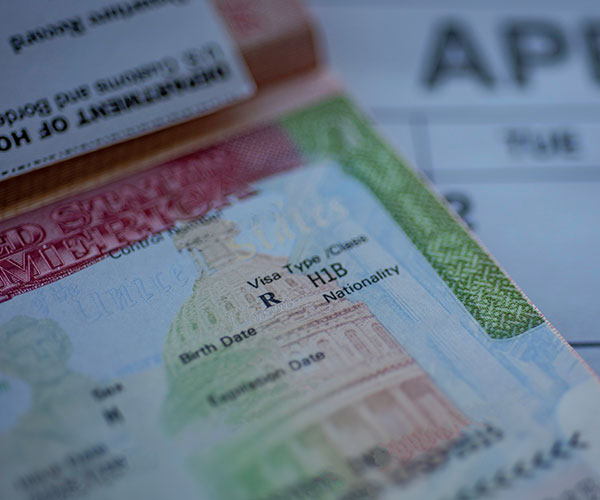With a new $100,000 application fee, Project Firewall enforcement, and confusion about who is affected, HR leaders must tighten documentation, centralize records, and enforce access controls to stay compliant and protect their talent.

H-1B visa compliance in 2025 and 2026 has become a top priority for HR leaders. The administration’s new $100,000 fee for each new petition, combined with stepped-up enforcement through Project Firewall, is reshaping how employers budget, document, and retain skilled international talent. With the annual cap already reached and regulators demanding faster access to complete records, HR teams must strengthen documentation practices, centralize storage, and ensure audit readiness to protect both compliance and workforce stability.
What just changed
- $100,000 fee for new petitions: The presidential proclamation signed September 19, 2025 imposes a $100,000 payment on new H-1B petitions submitted on or after September 21, 2025. This does not apply to existing H-1B visa holders or renewals.
- Project Firewall enforcement initiative: The U.S. Department of Labor has launched Project Firewall to target employers abusing the H-1B system. Investigations can now be certified personally by the Secretary of Labor when there is reasonable cause. Violations could lead to back wages, fines, or even debarment.
- Proposal to favor higher-wage applications: A proposed rule aims to modify the selection process (used when H-1B demand exceeds the cap) to prioritize applications offering higher wages, effectively making the lottery weighted by pay level. This shift signals increased scrutiny of compliance and wage documentation.
What hasn’t changed
- The basic structure of the H-1B program remains unchanged: U.S. employers may still file petitions for foreign specialty occupation workers who meet the degree and specialty job requirements.
- The annual cap: 65,000 regular H-1B visas plus 20,000 for U.S. advanced degree holders remains in effect.
- Core compliance obligations with LCAs (Labor Condition Applications), Public Access Files, wage postings, retained payroll records, and required notices are still required under law.
Compliance essentials HR cannot ignore
| Area | What HR must double-check / update |
| Public Access File (PAF) | Must include a certified LCA, offered wage, proof of notice/posting, and explanations for actual wage systems. The file must be accessible within one working day after the LCA filing. |
| Retention of records | PAF must be kept for one year beyond the last date any worker is employed under the relevant LCA; payroll comparator data for H-1B vs U.S. workers retained for at least three years. |
| Wage compliance & posting proof | Ensure pay is consistent with the wage offered in the LCA; document all worksite notices or electronic/e-mail notices. Preserve proof. |
| Travel and entry implications | For holders outside the U.S. returning after September 21, ensure compliance with the new fee policies. Clarity is still evolving, so HR should track guidance. |
Key new risk factors in 2025-26
- Smaller or cost-sensitive employers will face significant financial challenges with new H-1B hires.
- Uncertainty about travel and entry for holders outside the U.S. could slow or disrupt workforce mobility.
- Any ambiguity in internal documentation (missed postings, unclear wage comparators) will raise risk under Project Firewall.
- The changes may shift which roles companies sponsor under H-1B (favoring higher skill, higher wage, or mission-critical roles).
The HR documentation map
To manage risk and stay compliant, HR should maintain two separate but linked record sets for each H-1B worker/LCA:
1. Public Access File accessible upon request, includes:
- Certified LCA and corresponding covers
- Offered wage and explanation of the actual wage system
- Summary of benefits for U.S. workers in same role or locality
- Posting/notices or proof of direct notice
- Any dependency or exemption documentation
- Retained one year after last employment under that LCA ends
2. Private Compliance File restricted access, includes:
- Full petition package (Form I-129, approval notices, any extensions)
- Degree credentials, job description, work location documentation
- All payroll records and comparator data
- Travel/entry/exit proof (if relevant under the new rule)
- Documentation of any material change in employment (location, role, wage)
- Retain required records at least three years, longer in case of investigation
How DynaFile helps HR stay audit-ready
- Secure cloud storage with granular access controls ensures that Public Access Files and private compliance files are separated, securely stored, and accessible to authorized staff quickly.
- Role-based permissions and audit trails record who viewed or edited documents and when, which helps in investigations under Project Firewall.
- Automated retention and legal hold policies manage timelines for PAF (one year post-LCA), payroll records (three years minimum), and keep records indefinitely if litigation or enforcement is underway.
- Rapid retrieval and shareable reports help ensure that every required element in the petition or PAF is present before submission, allowing HR to produce documentation quickly in response to agency requests, audits, or internal gaps.
Quick checklist for HR right now
- Update budget forecasts to include the new $100,000 fee for any upcoming H-1B petitions (new/entry cases).
- Audit your latest five LCAs and associated PAFs to ensure posting proof, wage comparators, and benefits summaries are all documented.
- Review travel/entry policies for H-1B employees abroad to ensure effective communication and support are in place.
- Strengthen internal controls on who can access private vs public files.
- Institute internal spot audits of records you expect to be requested under Project Firewall (PAFs, wage evidence, posting proofs).
FAQs
Q: Does the new $100,000 fee apply to renewals or existing H-1B holders?
A: No. White House and USCIS clarified that it only applies to new petitions filed on or after Sept 21, 2025. Renewals and individuals already holding H-1B status are exempt from the new fee.
Q: What is Project Firewall?
A: An enforcement initiative from the U.S. Department of Labor to increase oversight of H-1B employers. Under Project Firewall, investigations can be initiated by the Secretary of Labor when there is “reasonable cause.” It increases the risk of penalties, back wages, and program bans for noncompliance.
Q: How should HR treat employees currently outside the U.S.?
A: If they are holders of valid H-1B visas, travel and re-entry may not be subject to the new fee, depending on policy clarifications. HR should monitor guidance closely and manage risk by advising employees appropriately.
Stay Compliant. Protect Your Talent.
H-1B visa compliance in 2025 and 2026 requires secure record-keeping and prompt responses to audits. With DynaFile, you can centralize immigration files, control access, and automate retention, all in one secure cloud system.
Schedule a DynaFile demo and see how DynaFile keeps your organization audit-ready.


